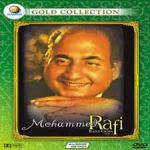By Rashmi Talwar
Kotla Sultan Singh a decrepit village 30 Kms from Amritsar is known more as the birthplace of legendary playback singer Mohammad Rafi
The singer’s class mates one of them being Bakshish Singh remembered the singer by his nick name ‘Pheeko’. At his age of 93, Bakshish can still surprise you with his memory about good friend Mohammed Rafi whom he met just once in Amritsar after he became a singing sensation .
This time on the singer’s 30th death anniversary 0n July 31 the ancestral village held a singing competition in memory of the boy who did them proud. The village’s Senior Secondary School (then primary) has also been renamed as Mohd Rafi Sn Sec School where the singer studied.
Bakshish’s bleary eyes light up when asked about his singer friend and he goes into realms and realms of incidents of their childhood together .
“Rafi was uninterested in studies and used to slip out from the school (there were no rooms then for classes, only a tree shade) . He was often spanked and thrashed by school teachers and parents for bunking. Often we used to see him in the company of fakirs singing with them or drumming a tune on any inane object in his hand. His house was next to ours and that’s how our friendship grew. We used to play together and while taking our domestic animals for grazing he used to keep singing or humming a tune .
His father Hajji Ali Mohammad was a cook and I remember during those days of child marriage , Rafi’s baraat went to Lahore after which he stayed a few years in the village. Later about 2-years before Indo Pak Partition his father took him to Lahore to make his vagabond son do some work. There the family had a barber’s shop at Lahore’s Noor Mohalla and Rafi was tasked to clean the shop . One day as Rafi was busy cleaning and singing alongside, two top music directors in the shop (Lahore was then the cultural capital of Punjab ) spotted him and asked him to sing once again for them. Impressed, one of them took out a song on a piece of paper from his pocket and pushed it into Rafi’s hands and told him if you are able to sing this song at a Mushiara scheduled to be held in one week , we will select you. Rafi was thrilled but was poor at reading therefore took help of others to read the song , memorized it and set it to a tune. After he sang the song at the Mushiara , there was no looking back for him . the music directors took him under their wings and the rest is history . according to some Rafi learnt classical music from Ustad Bade Ghulam Ali Khan,Ustad Abdul Wahid Khan, Pandit Jiwanlal Matto and Firoze Nizami.
Bakshish Singh’s son Santokh Singh Samra who is the head of Kotla Sultan Singh contends that the village is trying to do its own bit to keep the memory of the singer alive.
“We started a computer training centre at the village named after Rafi. The school gate and the road leading to the village was also named after him. Now, we have left out an acre of land, which we intend to convert into a park named after him. We will also have his statue inside the park when it comes up,” he said.
Born on December 24, 1924, Rafi died on July 31, 1980. He lent his voice to Bollywood’s megastars including AmitabhBachchan, Shammi Kapoor, Dharamendra and Dev Anand. He has numerous hit songs to his credit including several duets with famous playback singers Lata Mangeshkar and Asha Bhosle.
It was music that got him to Lahore where he sharpened his musical skills under the guidance of Ustad Ghulam Ali Khan. In 1944, he made his singing debut in a Punjabi movie called Gul Baloch with Zeenat Begum. The song was a duet called ‘Soniye Ni Heeriye Ni’ penned by Shyam Sunder.
However, it was Homi Wadia who actually recognized the power of Rafi’s voice and insisted that he sing a song for his upcoming film ‘Sharbati Ankhen’ under the direction of Feroz Nizami. His voice comprehended an incredible variety which is beyond comparison. This range and texture enabled him to reach new heights in his career. And it was his voice that would eventually set him apart from his colleagues.
Rafi lent his voice to film songs as well as everything from Bhajans to Qawalis. His voice was suitable for almost any genre of music be it a heartrending ghazal like ‘Aap Aye Toh Zindagi Ayee’, a sad bhajan like ‘Sukh Ke Sab Saathi’, or a crazy and whacky duet song like ‘Jaanu Meri Jaan.’
Mohammed Rafi contributed his enjoyable tinges to the piece of music and made it eternal. His voice had this exceptional quality of forcing the listener to transform the lyrics into pictures and with the presence of his mind as a singer, it aided him to mold his voice across an array of faces that linger unshakable in our memories. For instance, his take on Comedian Johnny Walker was quite extraordinary. He managed to sound exactly like Johnny Walker, especially in the songs ‘Sar Jo Tera Chakraye’ and ‘Aye Dil Hai Mushkil Jeena Yaha.’ Before the shooting of the song would proceed, Rafi would call Johnny Walker and discuss the character which Johnny Walker would play on screen.
And it’s no surprise that actors like Joy Mukherjee, Biswajit Chatterjee, Bharat Bhushan are remembered more for the songs which Rafi has lent his voice to than for their acting skills. It was Rafi who sang the famous ‘Yahoo’ for Shammi Kapoor.













Recent Comments